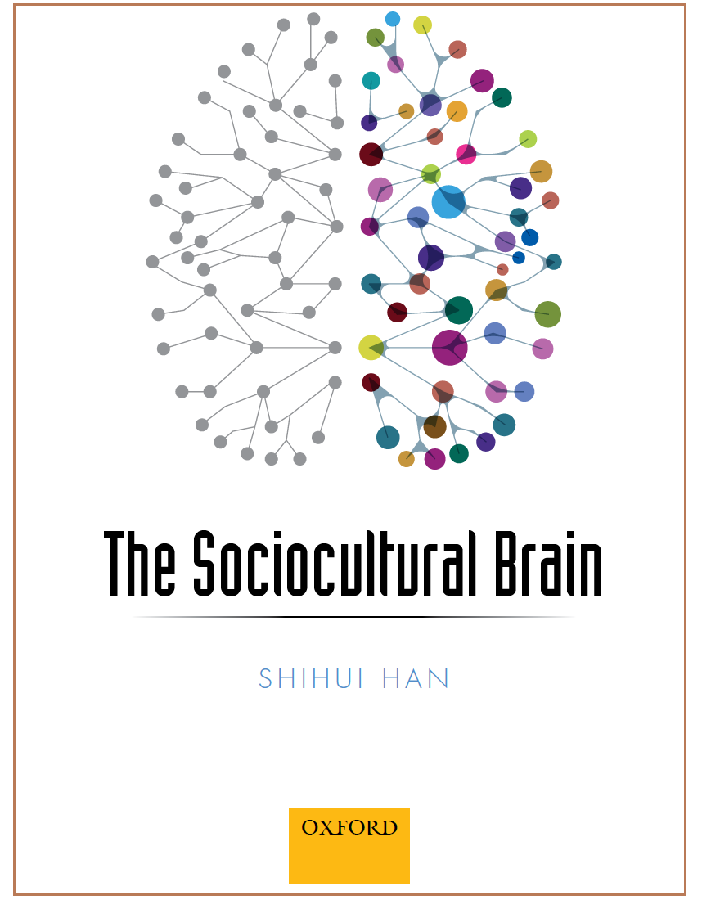
<span "="">How is the human brain shaped by our sociocultural experiences? What neural correlates underlie the extraordinary cultural diversity of human behavior? How do our genes interact with sociocultural experiences to moderate human brain functional organization and behavior? Prof. Shihui Han from School of Psychological and Cognitive Sciences and PKU-IDG/McGovern Institute for Brain Research, Peking University published a book titled "The Sociocultural Brain" that provides a new perspective on human brain functional organization, highlighting the role of human sociocultural experience and its interaction with genes in shaping human brain and behavior. Drawing on cutting edge research from the burgeoning field of cultural neuroscience, it reveals the cross-cultural differences in human brain activity that underlye a multitude of cognitive and affective processes - including visual perception/attention, memory, causal attribution, inference of others’ mental states, self-reflection, and empathy. In addition, it presents studies that integrate brain imaging and cultural priming to explore the causal relationship between culture and brain functional organization. The book ends with a discussion of the implications of cultural neuroscience findings for understanding the nature of human brain and culture, as well as the implications for education, cross-cultural communication and conflict, and the clinical treatment of mental disorders.